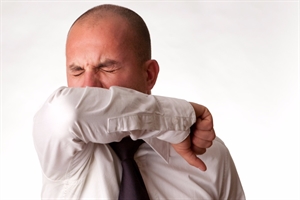The World Health Organization has issued specific guidance to the public aimed at reducing the spread of COVID-19, and this includes deploying good respiratory etiquette and hygiene.
Respiratory etiquette consists of a few simple habits that will protect you and others from getting coronavirus disease. For most people COVID-19 is a mild – though very infectious – illness. To protect those with underlying health problems and to reduce the impact of the outbreak on the population as a whole you should follow this advice.
Good respiratory hygiene has the added benefit of helping to protect everyone from other airborne diseases, such as common cold, diphtheria, tuberculosis and meningococcal meningitis.
Learn more about WHO’s guidance here.
Wash your hands
Regular hand cleaning, either with an alcohol-based rub or with simple soap and water will kill any viruses on your hands.
Don’t touch your face
By keeping your hands off your face, you reduce the spread of viruses. Touching your face can transfer viruses to your hands, which then get transferred to surfaces that others might touch. You will also transfer viruses from your hands to your face, which could then infect you.
Enforce social distance
When someone coughs or sneezes, they spray out respiratory droplets. These droplets are loaded with viruses, which can infect others if they breathe them in. To avoid being showered stay at least a metre away from anyone who is coughing and sneezing.
Avoid physical contact when greeting someone. It’s better to wave, nod or bow, rather than hugging or shaking hands.
Cover coughs and sneezes
Catch your own respiratory droplets by coughing or sneezing into your elbow or into a tissue. Put used tissues straight into a covered bin.
What should I do if I get sick?
If you feel ill – especially with a fever and respiratory symptoms like a dry cough – refer to the Government of Canada’s guidance on COVID-19. The World Health Organization says to stay at home with even mild symptoms.
Does COVID-19 make it dangerous to travel?
The Government of Canada has issued advisories about various destinations around the world in the light of COVID-19. The situation is changing daily, and you should check directly with The Government of Canada when you make decisions about travelling.
Even if you’re not sure whether your trip will go ahead, we urge you to make an appointment with Canadian Travel Clinics six to eight weeks before your planned departure. Many vaccinations are good for several years and will still protect you if you have to postpone your trip. We ask you to see a travel health nurse well in advance because some shots have to be given in a number of doses over several weeks. We can offer appointments early and late in the day and our clinics are all in convenient downtown locations.
How do I make an appointment for travel vaccinations in Vancouver?
Canadian Travel Clinics can offer same-day vaccinations at our travel clinic in Vancouver. Make an appointment online right now.

